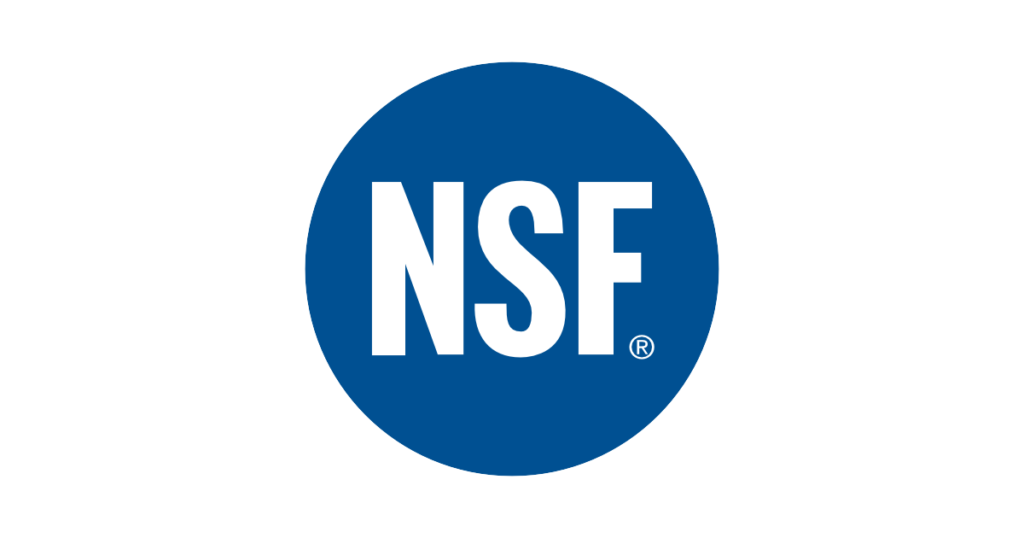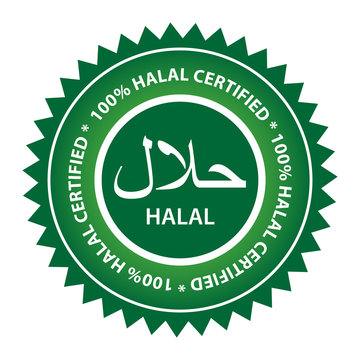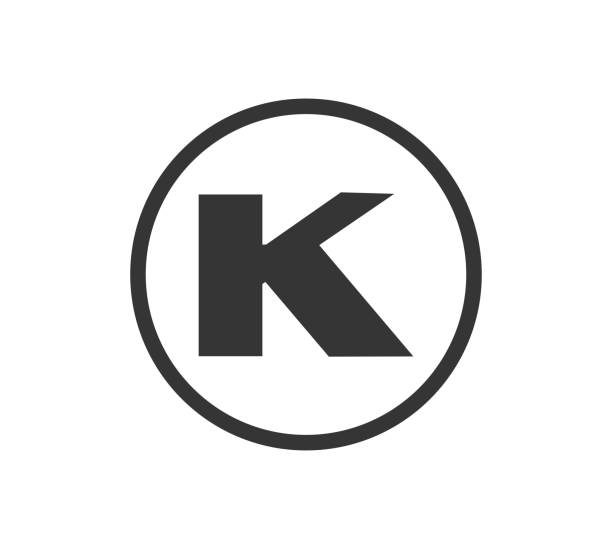
Source: https://depositphotos.com/photo/woman-working-on-coffee-factory-48298707.html
Understanding Food Certification Agencies
Certifications like NSF, Kosher, and Halal ensure that food processing meets safety, quality, and ethical standards. They guarantee adherence to dietary rules, cultural practices, and health regulations, giving consumers confidence in product integrity, reducing contamination risks, and promoting transparent, consistent practices in the food industry. Getting a food safety certificate further reinforces these commitments by verifying that a company’s food handling processes meet rigorous safety standards.
NSF Certification

Source: https://www.pngegg.com/en/png-ehyit
National Sanitary Foundation (NSF) certification confirms that goods adhere to high requirements for public health and safety. To ensure regulatory compliance, customer safety, and product integrity, the certifying agency tests and certifies consumer products, water systems, and food equipment.
A thorough assessment of food items, facilities, and equipment is required for NSF Certification to guarantee that they adhere to stringent public health and safety regulations. NSF certification criteria include:
- Material review: Involves checking a product’s ingredients to ensure they are safe, appropriate, and used correctly for their intended purpose.
- Manufacturing Process: Manufacturing facilities and processes are checked to ensure they follow Good Manufacturing Principles (GMP) and maintain consistent quality.
- Labeling and Claims: Making sure product labels are accurate and backed by evidence helps prevent misleading or false advertising.
- On-Site Inspections: Regular checks of production facilities to ensure they continue to meet NSF guidelines through inspections.
- Product Testing: To make sure they fulfill performance and safety requirements, products go through extensive testing. Testing for pollutants, efficacy, and regulatory compliance are all included in this.
- Continuous Monitoring: Regular product testing and facility inspections are done to maintain certification and ensure continuous adherence to standards.
Halal Certification

Source: https://www.pngegg.com/en/png-cbrmn
Halal certification guarantees that goods adhere to Islamic dietary laws. The certifying body inspects foods, beverages, and other consumables to ensure they adhere to Islamic law. This entails following hygienic guidelines, moral sourcing procedures, and processing techniques to satisfy the dietary requirements of Muslim consumers.
The main requirements for obtaining Halal certification vary depending on the country and certifying body, but typically include:
- Processing: No non-Halal material should contaminate any production step, including sourcing, handling, and manufacturing.
- Hygiene & Sanitation: Facilities must follow strict hygiene regulations to prevent contamination with non-Halal materials.
- Traceability: Halal ingredients must be traceable from origin to the final product through proper documentation and tracking.
- Inspections: Halal certifying authorities conduct regular inspections to ensure compliance.
- Ingredients: All ingredients used in the process or product must be Halal, permitted by Islamic law.
- No Cross-Contamination: Precautions during manufacturing, storage, and transportation prevent mixing non-Halal products.
- Instructional Training: Staff training ensures understanding of Halal laws and customs.
- Labeling: Proper labeling of Halal products provides transparency to customers.
- Ethical Practices: Following moral and ethical standards in business dealings.
- Animal Slaughter: Meat products must adhere to specific Islamic slaughter practices (Bahia).
- No Pork Products or alcohol: products must not contain any pork derivatives or alcohol.
Kosher Certification

Source: https://www.pngegg.com/en/png-tgpod
Products that are certified Kosher adhere to Jewish dietary regulations. The certifying agency confirms that the sourcing, processing, and preparation of ingredients adhere to Kosher standards, meeting the dietary requirements of the Jewish community.
To obtain Kosher certification, a range of requirements and criteria must be met. While many focus on food products, there are also specific standards for non-food items such as lubricants used in food production. Below are the key criteria:
- Ingredients: All ingredients must be Kosher, derived from permissible sources, and processed according to Kosher laws.
- Production Equipment: Equipment used in the production process must be Kosher, ensuring that it has not been contaminated by non-Kosher substances. This includes the cleaning and preparation of the equipment.
- Lubricants and Additives: Lubricants, greases, and other non-food substances used in the manufacturing process must also be Kosher-certified to avoid cross-contamination.
- Packaging: Packaging materials must be handled in a way that prevents contamination from non-Kosher substances.
- Supervision: Continuous supervision by a qualified Kosher certifying agency is required to ensure compliance with all Kosher laws and standards.
- Storage and Transportation: Proper storage and transportation practices must be followed to maintain the integrity of Kosher-certified products.
Ensure Compliance and Safety with Fluid Solutions’ Certified Lubricants
Fluid Solutions offer an exceptional range of NSF, Halal, and Kosher certified food-grade lubricants, ensuring top-notch food safety and compliance. Our products meet the toughest industry standards, making them perfect for food processing.
By partnering with Fluid Solutions, you can trust the purity and quality of our lubricants, ensuring smooth and worry-free operations. Our certifications highlight our commitment to safety and reliability, helping you maintain compliance and peace of mind.
Choose Fluid Solutions for a dependable partnership that prioritizes quality and safety in every drop. Connect with us by calling (02) 8370 5928 / (0917) 894 9156 or email inquiry@fluidsolutions.com.ph.
Social Media Links:
Facebook Page: https://www.facebook.com/fluidsolutionsinc
LinkedIn: https://www.linkedin.com/company/fluid-solutions-inc


